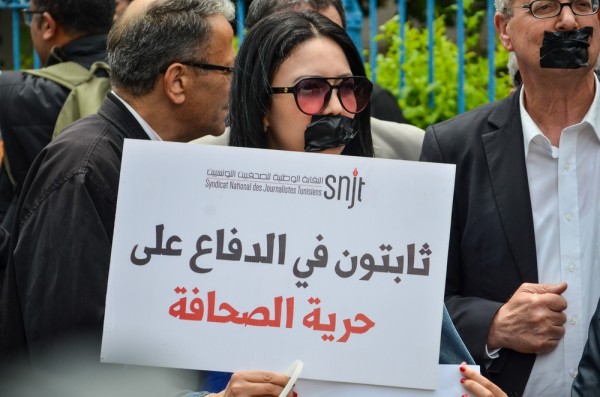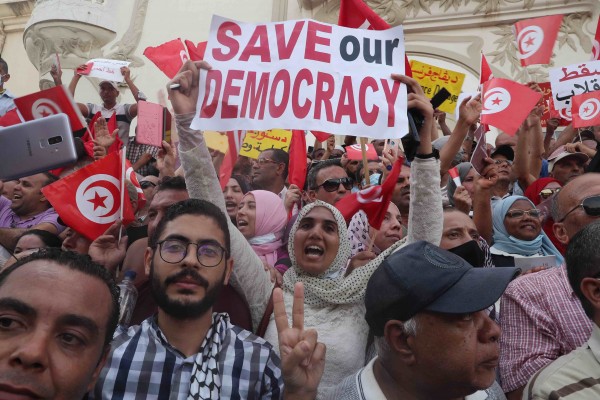One of Tunisia’s best-known bloggers and anti-censorship activists was arrested on Thursday, according to Global Voices Advocacy. Slim Amamou, who contributes to the Global Voices website, was going to work around 1pm when his friends and colleagues lost trace of him. He revealed his position, at the Ministry of Interior, around 6pm, through a geolocation website.
Along with Amamou, another blogger, Azyz Amamy, has reportedly disappeared. He covered one of the protests in Tunisia, in Sidi Bouzid, a few weeks ago.
“Amamou was aware that something was going to happen,” Jillian C. York, writer for Global Voices Online, said. “He is an easy target. I don’t think something specific is on charge against him.”
Global Voices advocacy director Sami Ben Gharbia said that the police didn’t confirm or give clear reasons for the detention. On Thursday Amamou tweeted that the police was monitoring his house. He also received several anonymous calls at his workplace.
York excludes any direct link between Amamou and Anonymous, a band of hacker activists which targeted Tunisian government websites in protest against the country’s repressive censorship: “He wasn’t directly involved in that attack,” she said.
“It is good to raise awareness on this topic, but let’s not give any excuses to the government linking his arrest to Anonymous,” Gharbia said.
This is not the first time Amamou has been arrested. Last year, before the protest against censorship on 22 May in Tunis – which he helped to organize – he was jailed with his co-signer Yassine Ayari and forced to call off the event through a video recording.
“He has been on the government’s list since then,” Gharbia said.
Last year Amamou denounced on the Global Voices website the mass phishing of Tunisian email accounts, which inaugurated a new wave of censorship by the government. Since then, the country has tightened its control over mainstream and social media, hacking into activists’ mail accounts, filtering websites, and accessing and disabling blogs and social networking sites.
After the Sidi Bouzid riots, which began on 17 December, when an unemployed man set himself on fire to protest against joblessness in Tunisia, the government increased online censorship in the country, blocking Facebook accounts and intensifying cyber attacks.
Against this repressive background, Amamou’s arrest sounds like an attempt by the Tunisian government to silence all voices against repression in the country.
“Slim’s ‘crime’? Speaking openly, tirelessly, and fearlessly about censorship, as far as I know,” York wrote on her blog. “He was an occasional contributor to Global Voices Advocacy, more a friend of the organization. I am angry but at the same time I am hoping the US government will do something behind the scenes for his release.”
Unrest continues to grip Tunisia. The government has acknowledged that 14 people have died in clashes with the police. However, opposition leader Ahmed Nejib Chebb claims that at least 20 people have been killed in the streets. The OLPEC (Observatory for the Freedom of Press, Publishing and Creation) has called on the International Community to stop the massacre and has raised the number of deaths to 50, since the beginning of the unrest in December.


